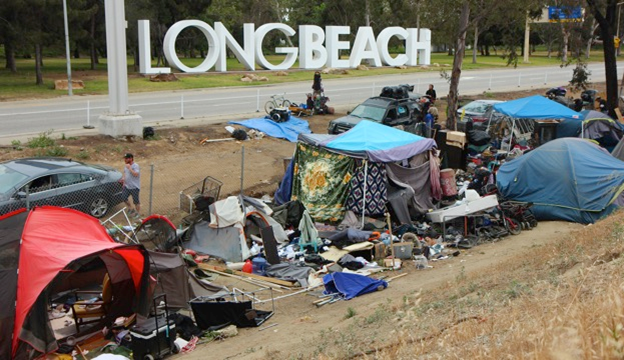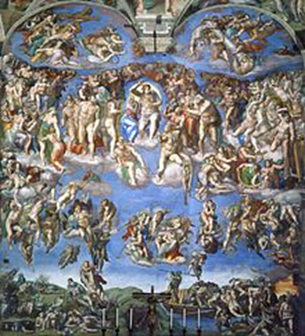
“A Piece of My Mind”
April 2024 Newsletter
Advancing Christian Faith and Values,
Defending Religious Liberty for All,
Supporting Civility and the Common Good
through Preaching, Teaching, Writing,
Activism and Reasoned Conversations

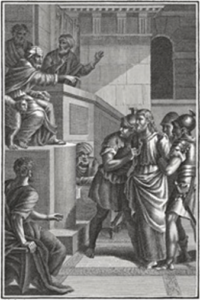 Good Friday?
Good Friday?
Jesus agonized in prayer in the Garden of Gethsemane.
He was betrayed by Judas and delivered over to those who willed his death.
He was beaten and sentenced to death in Pilate’s Judgment Hall.
He was taken to Calvary and there he was crucified.
He died, after which a Roman soldier pierced his side with a sword.
He was buried.
So how can we call the day it happened “Good”?
See next what The Apostles’ Creed says about what happened on Good Friday.
“The Apostles’ Creed” (Part 4)
“…when they came to the place that is called The Skull, there they crucified him, and the criminals, one on his right and one on his left. And Jesus said, “Father, forgive them, for they know not what they do.”
– Luke 23:33-34 ESV
[I believe…in Jesus Christ, who…]
suffered under Pontius Pilate,
was crucified, dead, and buried.
4A – Not a word is said in this creed about Jesus’ life between his birth and passion (suffering).
Neither The Apostles’ Creed nor The Nicene Creed spends a moment on the life of Jesus. It’s as if Jesus’ life (33 years, including 3 years of intense ministry) is the silent hyphen between two dates (his birth, his death).
An interesting text in the Book of Revelation says even less: “She gave birth to a male child…and the child was snatched up to God and to his throne” (Revelation 12:5 NIV). Birth and ascension, nothing in between.
I see no error in what the creeds do. They catch two high points in Jesus’ life. A full Christology (the doctrine of Christ) and a study of the Life of Christ, of course, must do much more. Learning this is part of Christian growth; learning of Jesus’ birth and death is part of Christian initiation. If we ignore the life of Christ (as if to say, “He came to die”) we have truncated the Gospel.
4B – “Pontius Pilate” – from now on a “household name!”
Two people are named in this creed: the righteous virgin Mary, the unrighteous governor Pilate. How would you like your name mentioned this way in a creed recited by hundreds of millions over the millennia?
Pilate was no paragon of justice. He was self-serving to crucify Jesus. He thought he could wash his hands of his evil deed (Matthew 27:24), but no amount of water would ever remove this guilt.
Pilate once mingled the blood of Galileans with their sacrifices (Luke 13:1). Historians differ over whether he was an effective or cruel leader, or both. Putin comes to mind.
Summoned back to Rome for brutality against Samaritans, he never did come to trial and may have simply retired. The Coptic Church believes he became a convert to Christianity and venerates him as a martyr and saint. The Roman historian Tacitus references Jesus’ death under Pilate.
4C – “Crucified” is more than just a word.
We may say or read this word and pass on, missing its significance. People of the Roman world of Jesus’ day knew the horror behind the word.
Nailed to a cross or a stake by the hands (or wrists or forearms) and feet, the person under such a sentence of death would die after hours or days due to asphyxiation. The torturous hours would be spent in agony at the mercy of the heat and birds and insects as well as, in Jesus’ case, the taunts of others.
Rather than “on a hill far away,” crucifixion was probably done where the public would pass by, behold, and take heed. Don’t mess with Rome!
The Gospel accounts indicate that Jesus yielded up his life prior to dying by asphyxiation. John 19:31-33 indicates that a soldier broke the legs of the two crucified with Jesus, which would quicken their asphyxiation. But Jesus was already dead and the soldiers did not break his legs.
4D – No reason for Jesus’ death on the cross is given in this creed.
The Nicene Creed begins its confessions about Jesus’ birth and death with the words “for us and our salvation” (he was born, he died, etc.). It continues “for our sake he was crucified…” Other than these words we would not know from these creeds that Jesus’ death was salvific, not just a secular Roman penalty.
The Gospel of John, in its common effort to show “the Purpose” deeper than a “purpose,” tells us that a Roman soldier thrust a spear into Jesus’ side and at once blood and water flowed out. The word on this action is given to evoke faith in Jesus and to highlight the fulfillment of scripture (John 19:34-37).
1 John 5:6-10 contains a confession that may mystify us a bit:
This is he who came by water and blood—Jesus Christ; not by the water only but by the water and the blood. And the Spirit is the one who testifies, because the Spirit is the truth. For there are three that testify: the Spirit and the water and the blood; and these three agree. If we receive the testimony of men, the testimony of God is greater, for this is the testimony of God that he has borne concerning his Son. Whoever believes in the Son of God has the testimony in himself.
I understand this as looking back to the soldier piercing Jesus’ side. The Spirit of God testifies to the truth of “the water and the blood,” and belief in the Christ who lived for us and died for us is a saving belief. I suggest that the water and blood that flowed from Jesus’ side bore witness to a real birth in the flesh and a real death on the cross. This countered heresy that denied a complete incarnation and actual death on the cross. This confession was important then and still is now.
We could state several answers to “Why did Jesus die?” Here are three. One does not exclude the others.
1) Jesus died “for our sins” (1 Corinthians 15:3), that God’s just wrath against evil might be satisfied and God might be just when he justifies those who have faith in Jesus (Romans 3:23-26).
2) Jesus also died as an example to us who believe in him, so we might know how to face injustice and assaults on our faith as he did (1 Peter 2:21-24).
3) Jesus’ death was a climatic victory—liberation from Satan and evil. By the cross, God “disarmed the rulers and authorities and put them to open shame, by triumphing over them in him” (Colossians 2:15).
This third motif is often overlooked by Christians today, who focus on the first almost exclusively. But in the early church and in the church’s first millennium the idea that Jesus died the Victor (Christus Victor) was strong. If we taught this and believed it more intensely, our Communion services would be more celebratory and less like funerals.
5D. Jesus’ burial underscored the reality of his death and brought an end to his humiliation.
Joseph of Arimathea, a prominent leader of the people and a believer in Jesus, went to Pilate and asked for the body of Jesus. Amazed that Jesus was dead so soon, Pilate verified Jesus’ death and then released the body to Joseph.
Joseph buried Jesus’ body in a new tomb after carefully removing it from the cross and wrapping it in linen. To me, this signals the end of Jesus’ humiliation and anticipates his exaltation. As if God said, “My son will now be treated with dignity.”
All four Gospel accounts record the burial of Jesus (see Mark 15:42-46). The word on Jesus’ burial is not just some afterthought—it is confessional (“crucified, dead and buried” in the words of the creed). Burial is an important pointer to the certainty of his death and this truth is part of the Gospel that saves us: “By this gospel you are saved…Christ died for our sins…he was buried…he was raised on the third day” (1 Corinthians 15:2-4).
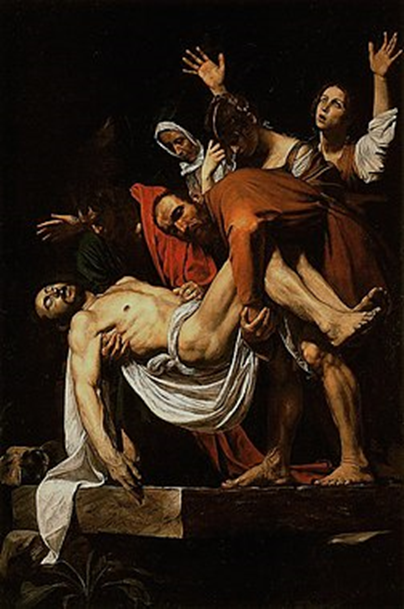 Bearing shame and scoffing rude,
Bearing shame and scoffing rude,
In my place condemned He stood.
Sealed my pardon with his blood,
Hallelujah, what a savior!
(P. P. Bliss, 1875)
Living, He loved me; dying, He saved me;
Buried, He carried my sins far away;
Rising, He justified freely forever:
One day He’s coming—O glorious day!
(J. Wilbur Chapman, 1908)
“The Entombment of Christ”
By Caravaggio (1603)
Nicodemus and Joseph of Arimathea place Jesus in a tomb while Jesus’ mother Mary, Mary Magdalene
and Mary of Clopas look on.
A Word to Pastors, Church Leaders and Active Church Members…
“50+ Years of Ministry in Southern California – 1970-2024”
By Donald Shoemaker
Pastor, Professor & Police Chaplain
“Ministry” as I’ve known it is about to change in my life as my wife and I relocate soon. This reality gives me pause to reflect back on my ministry journey and now write and speak on it. Here I share three big observations as I look back on over a half-century of ministry in Southern Cal.
1. The Southern California culture has changed, and I changed with it.
In January 1970 my wife and I flew to California. At age 25, I was to candidate for the pastoral position at a church in Long Beach. We could call that our “SNOWPLOW” trip—the runway in South Bend IN had to be plowed for the plane to get in to take us to Chicago. It was our first plane flight—totally in the clouds from takeoff almost to landing.
“Long Beach is a pretty conservative city,” a host family member told us. Well, maybe at the start of my ministry here, but would this ever change over the years!
We moved to Long Beach in July 1970. I became a pastor and we bought a house nine doors behind the church, where we have lived until now.
A culturally conservative church in a conservative city fit me to a “T”.
My training at Grace Theological Seminary in Indiana was excellent, but basically it prepared me for service in a conservative cultural context, not in a cosmopolitan secular megalopolis. The church I pastored for six years was a good group of people. But it could have been plucked up from the Midwest and planted on the east side of Long Beach.
But then my notions of what it means to be spiritual and separated according to this conservative mindset dramatically unraveled.
• I ran into something called “The Jesus Movement.” Any pastor with an open mind couldn’t help but be influenced by this mostly-genuine spiritual revival.
• I participated in a “March for Jesus” that featured singer Barry McGuire. My assignment was to drive this sincere Christian with the looks of a hippie to the beach where he would sing. It was quite an “eye-opener” physically and spiritually.
• A year later I invited him to sing at my church. He stayed in our home for the weekend. His simple yet growing faith touched me deeply. Bias against long hair notwithstanding, our toddler daughter saw him and said, “Zeezaw [Jesus]!”
Preaching through the Gospel of Matthew was the final blow to the legalistic Christianity I was raised under and which was deep in the DNA of my church and my denomination.
Month after month I expounded Matthew without my culturally conservative glasses on.
Mt 15:11, 17-20 – “It’s not what enters into a man that defiles a man, but what comes from the heart.” Jesus meant what he said, and it couldn’t be explained away.
Mark 7:19 adds: “Thus he declared all foods clean.” I said in my sermon, “The teachings of
Fundamentalism are closer to the teachings of the Pharisees than to Jesus’ teachings.”
With this revolution in my thinking, my view changed on what musical instruments and styles are acceptable in worship. I wrote an article in our denomination’s magazine called “Music in Worship.” I said that opposition to guitars and “Jesus Music” made one a “weaker brother” by biblical standards. A reader’s Letter to the Editor said: “I couldn’t believe I was reading [our denomination’s] magazine.” A couple of months later a professor from our college wrote an article on music in the magazine as a rebuttal.
More important: my categories of clean and unclean people had to change (read the entire chapter of Acts 10). The Apostle Peter could never have ministered outside his conservative culture to Gentiles without the revolution in his heart that took place when a sheet descended from heaven full of clean and unclean foods and God’s word to Peter was: “Rise, Peter, kill and eat.” I call that “Peter’s Second Conversion” and I had a second conversion too!
Peter preached to the Gentile household of Cornelius and saw them converted. He told them: “God has shown me that I should not call anyone impure or unclean” (Acts 10:28). But would Peter ever get criticized for this foray into the Gentile world when he returned to his mother church!
This account about Peter and the Gentiles resonates with me. I had a similar experience!
2. My views on pastoral work have solidified against strong trends.
I still believe that most churches do best with “meat and potatoes” ministries and the pastor as a General Practitioner and a Bible expositor and “keeper of the peace.” There certainly are exceptions when churches find themselves in unique situations.
In 1984 I left a teaching position at Biola University and became pastor of the church in Seal Beach I retired from in 2012 and where I still serve.
“Church Growth”: About that time (1984), “The Church Growth Movement” (CGM) swept through churches and the pastoral profession. I can’t discuss the details here, but I quote Dr. Jim Borror*, one-time pastor of Lakewood First Baptist Church: “The CGM is the worst thing to hit the churches in my lifetime. It will drive a lot of good pastors out of the ministry.” Few good pastors are equipped with the talents, training or passion to be the kind of sodalic, visionary, compelling leader that the CGM tells us we must be. Whatever happened to “shepherds”? Read Ezekiel 34:4-5 on how shepherds/pastors can fail their task.
* Dr. Borror passed away on February 12 at the age of 90.
I adopted a thick skin on how pastoral work and success were defined in the CGM.
A missionary supported by our church told me that he had changed his understanding of what a “successful” church is. “Jesus taught us to love God and love our neighbor. A church leading its people to do those things is a successful church.” That is an encouragement to good, loving pastors who work hard at their churches—small, medium or large.
Preaching: (1) I moved away from rigid sermon prep based on the outlining of the text to prefer exposition that exposed the text through simple points people could easily grasp.
Preaching is not an effort to show our people how well we know the hidden truth revealed in Hebrew and Greek (a form of Gnosticism). Instead, we unfold the truths of the Bible they hold in their hands, so they can see it for themselves.
We are called to be simple preachers who can simultaneously feed mature saints needing the meat of the word and feed less mature saints still needing the “milk of the word.”
(2) I came to regard the most important part of sermon prep to be the hour or two I would spend developing the sermon outline—setting forth simple, organized, homiletically polished points that could be in their hands and projected on the screen and developed in the sermon. Pastors should never short-change their people by putting a piece of paper in the bulletin with only the sermon title and text on it!
(3) I decided that 30 minutes was long enough for a sermon. A 45-minute sermon doesn’t prove us to be more in-depth preachers. It may show we don’t want to organize our sermons more tightly. A 30-minute sermon takes more prep time than a 45-minute sermon.
A deep concern: I’m concerned about the deterioration of theological training and the decline of interest in theology amongst pastors. My denomination’s annual conferences used to feature a daily Bible hour, but now the focus is on methodology. Over a two-year time of study I switched my position on the rapture of the church from a pre-tribulation to a post-tribulation position. There was a time when this would have created a lot of controversy in my denomination, but I’ve heard such little reaction that I’ve had to wonder, “How much do we really care what a pastor believes?”
I thought I’d never hear what I heard a pastor in my denomination once say: “We’ve got doctrine coming out our ears.” As my grandfather would say, “Mark my words” – the seeds we’re sowing now will reap a bad harvest in a future generation.
Pastoral Care: Most won’t remember the sermons we gave (some will, for good or bad!), but they’ll remember our being there for them when their lives were upside down. They will remember my willingness to get up from finalizing sermon notes on a Saturday evening and go the hospital to visit someone in crisis (our current pastor is good at such compassion ministry). My mother was ill with terminal cancer in our home for six months and never got a pastoral call. I wouldn’t recommend her church to anyone, no matter how big it gets or how deep it is into Church Growth.
3. I’ve learned our churches must fulfill their mission to their communities.
I’ve been a social concerns activist for over 50 years. Not every pastor can or should have that level of involvement, but every pastor should be concerned about their communities and, more broadly, what’s happening in their country.
While reading the Bible through I came across Jeremiah 29:7 and it changed my ministry and our church’s focus. “Seek the shalom of the community where I have placed you and pray to the Lord in its behalf, for in its shalom you will have shalom” (my paraphrase).
Also, one year my church’s elder board, as part of an evaluation, made just about the best recommendation it could give. It recommended I find an avenue of service in the Seal Beach community. This led to my becoming the chaplain for our local police department—a service I still provide 23 years later.
When responding to a crisis “call out” I pray the Prayer of St. Francis: “God, make me an instrument of your peace…” Some chaplain experiences I’ve had:
• Many calls to homes during the night when a family member is discovered dead
• Call to accidents to be with families with injured or deceased loved ones
• Call to the hospital where a little boy or little girl wouldn’t survive
• Funerals for department personnel and their family members
• Having police officers seek me out for prayer as they faced tough situations
• The Salon Massacre of 2011 (I still meet with family members on the anniversary)
• Being able to open my church’s facilities in service to the police
Sadly, I learned from a person interested in being a chaplain at another agency:
• That department sent a letter to all area churches to see if any pastor had interest in being a police chaplain there. Results: zero.
• This person went to the leaders of her own megachurch and was told the church didn’t commission chaplains.
I’m pondering writing an article: “If you are too busy to serve your community, you are too busy.” The fields are white unto harvest, but where are the laborers who should be in the fields?
In summary, not every pastor is called to a community service position. But every pastor should be community-minded and lead his church in that direction. Politics has no business in the church, but the church must know what’s going in its community and how to respond.
God calls the church to judge its own and leave judgment of those outside the church to him (1 Corinthians 5:12-13). My job is to be a good neighbor, not a judge, to those outside the church. God will sort everything out on the Last Day.
For everything there is a season,
and a time for every matter under heaven:
A time to plant, and a time to pluck up what is planted.
A time to break down, and a time to build up.
A time to keep, and a time to cast away.
[God] has made everything beautiful in its time.
– Ecclesiastes 3:1-6, 11 NIV (excerpts)
Bottom line, after almost 54 years in our Long Beach, California home …
“The Time Has Come!”
We are moving soon to Temecula, California. Leaving our church and my chaplain work at the Seal Beach Police Department and the people involved at both are the two hardest parts of the change, followed by moving from our home, neighborhood, and friends and from the places that have supplied our needs and wants, most within a mile or two of where we’ve lived.
This picture shows the view from our second-floor bedroom deck …

www.donaldshoemakerministries.com
Don has been a member of the clergy in the Long Beach, California area since 1970. He now serves as Pastor Emeritus of Grace Community Church of Seal Beach (where he was senior pastor 1984-2012) and as Senior Chaplain of the Seal Beach Police Department (2001+). He previously was an assistant professor of Biblical Studies at Biola University (1976-84) and chaired the Social Concerns Committee in the Fellowship of Grace Brethren Churches from 1985 to 2019.
His graduate work includes a Master of Divinity magna cum laude from Grace Theological Seminary, a Master of Theology from Fuller Theological Seminary with a concentration in Christian ethics, and a Doctor of Ministry from American Baptist Seminary of the West (now Berkeley School of Theology) with a concentration on the Charismatic Movement. His law school studies included a course on the First Amendment. He and his wife Mary have been married for over 57 years. They have two children and six grandchildren.
© 2024 Donald P. Shoemaker


 You may have been one of the millions who watched the “He Gets Us” ad during the Super Bowl where several instances of washing another’s feet were depicted.
You may have been one of the millions who watched the “He Gets Us” ad during the Super Bowl where several instances of washing another’s feet were depicted.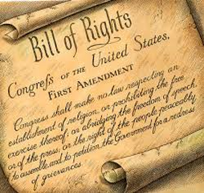 ““Congress shall make no law respecting an establishment of religion, or prohibiting the free exercise thereof, or abridging the freedom of speech, or of the press; or the right of the people peaceably to assemble, and to petition the Government for a redress of grievances.”
““Congress shall make no law respecting an establishment of religion, or prohibiting the free exercise thereof, or abridging the freedom of speech, or of the press; or the right of the people peaceably to assemble, and to petition the Government for a redress of grievances.” January 6 is “Epiphany” to many Christians. It celebrates the Christ Child, whose coming was marked by the arrival of the Magi (“Wise Men”) who came to worship baby Jesus. In their coming, salvation to the Gentiles through the Christ Child is on display.
January 6 is “Epiphany” to many Christians. It celebrates the Christ Child, whose coming was marked by the arrival of the Magi (“Wise Men”) who came to worship baby Jesus. In their coming, salvation to the Gentiles through the Christ Child is on display.
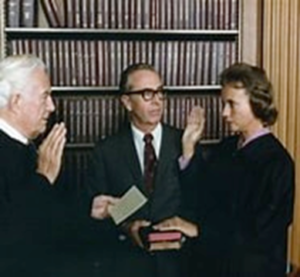
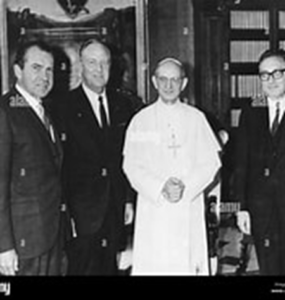 I Recall An Old “Henry Kissinger” Story
I Recall An Old “Henry Kissinger” Story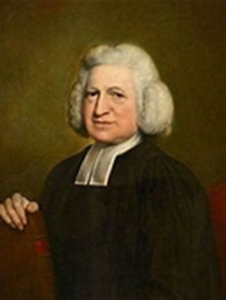 Charles Wesley (1707 – 1788)
Charles Wesley (1707 – 1788) Hail! the heav’n-born Prince of peace!
Hail! the heav’n-born Prince of peace!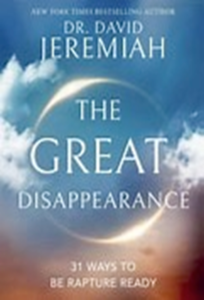 The Great Disappearance
The Great Disappearance Ohio Enshrines Abortion Rights into its State Constitution
Ohio Enshrines Abortion Rights into its State Constitution Israeli Airstrike Hits St. Porphyrius Church
Israeli Airstrike Hits St. Porphyrius Church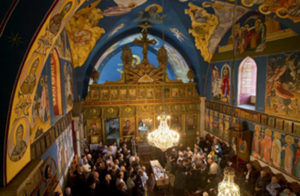 St. Porphyrius church was severely damaged by the October 20 Israeli airstrike. The Israeli military acknowledged the air strike, which targeted the nearby Hamas rocket and mortar launch command post. The church’s chapel survived the attack, but the airstrikes destroyed other parts of the compound.
St. Porphyrius church was severely damaged by the October 20 Israeli airstrike. The Israeli military acknowledged the air strike, which targeted the nearby Hamas rocket and mortar launch command post. The church’s chapel survived the attack, but the airstrikes destroyed other parts of the compound. As many as 500 people had taken refuge at the site, sleeping on mattresses throughout the compound’s seven buildings and using three bathrooms. It is estimated that 380 of the refugees were Christian and the rest Muslim. The known death toll from the airstrikes was eighteen Christians and two Muslims, not counting bodies still buried in the rubble. The Orthodox Patriarchate of Jerusalem strongly condemned the attack.
As many as 500 people had taken refuge at the site, sleeping on mattresses throughout the compound’s seven buildings and using three bathrooms. It is estimated that 380 of the refugees were Christian and the rest Muslim. The known death toll from the airstrikes was eighteen Christians and two Muslims, not counting bodies still buried in the rubble. The Orthodox Patriarchate of Jerusalem strongly condemned the attack.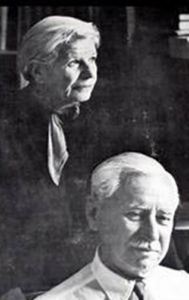 Will (1885-1981) and Ariel (1898-1981) Durant produced over their scholastic lifetimes the massive 11-volume The Story of Civilization. It was one of the first sets to go into my professional library, added while I was in graduate school. Prolific writers, in 1968 they wrote The Lessons of History, a summary of historic trends.
Will (1885-1981) and Ariel (1898-1981) Durant produced over their scholastic lifetimes the massive 11-volume The Story of Civilization. It was one of the first sets to go into my professional library, added while I was in graduate school. Prolific writers, in 1968 they wrote The Lessons of History, a summary of historic trends. In this special, favorite Season of the Year, I’m thankful for…
In this special, favorite Season of the Year, I’m thankful for… In what became known as the “Beer Hall Putsch,” Hitler led 2000 Nazi supporters in November 1923 on a mission to gain control of Munich. From there they hoped to generate an insurrection in Germany against the weak Weimar Republic.
In what became known as the “Beer Hall Putsch,” Hitler led 2000 Nazi supporters in November 1923 on a mission to gain control of Munich. From there they hoped to generate an insurrection in Germany against the weak Weimar Republic.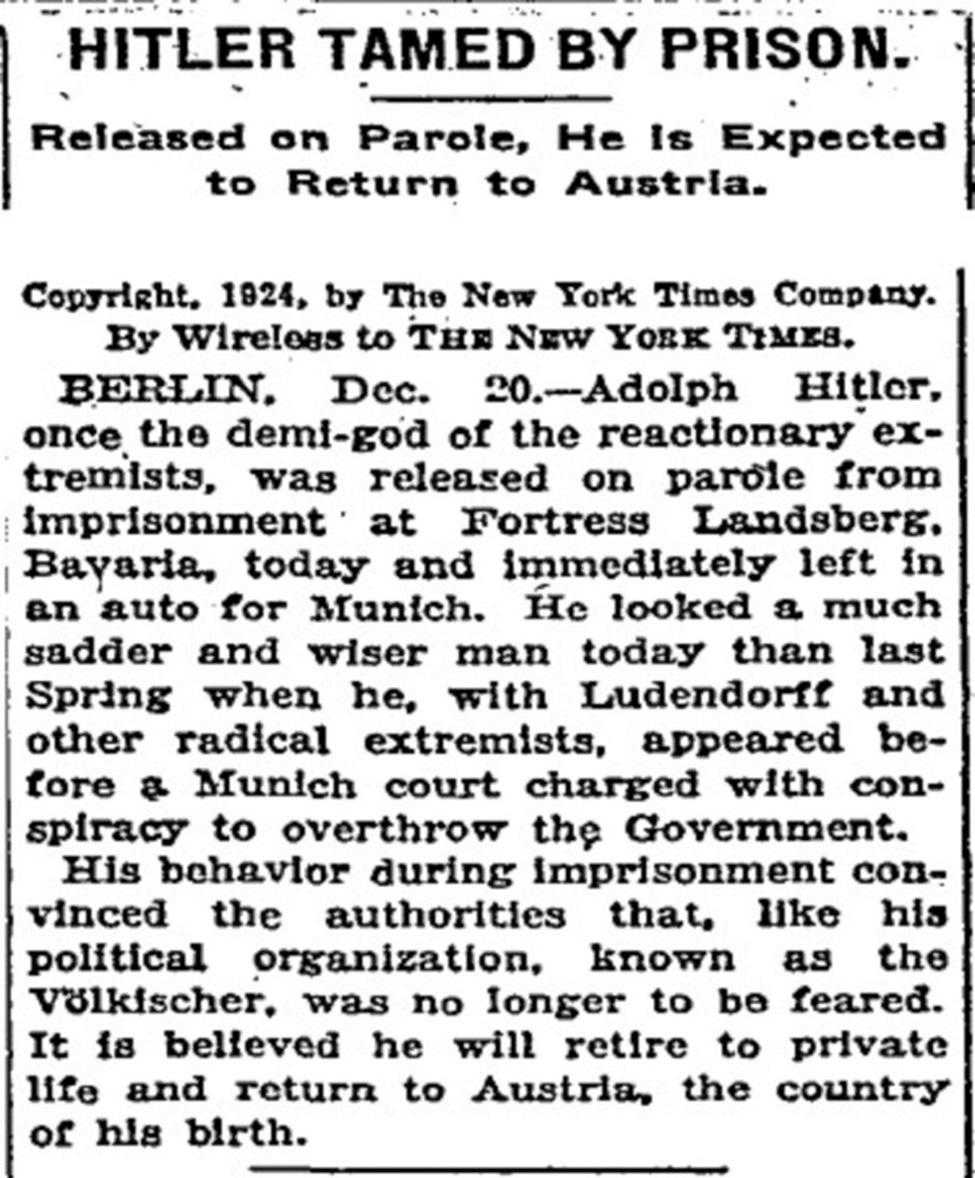
 A Litany of Thanksgiving
A Litany of Thanksgiving Have You Seen One of These?
Have You Seen One of These? Message of the Month:
Message of the Month: We won a victory, I guess, in a court settlement involving the Bank of America. Apparently it had something to do with some fees the bank was charging.
We won a victory, I guess, in a court settlement involving the Bank of America. Apparently it had something to do with some fees the bank was charging.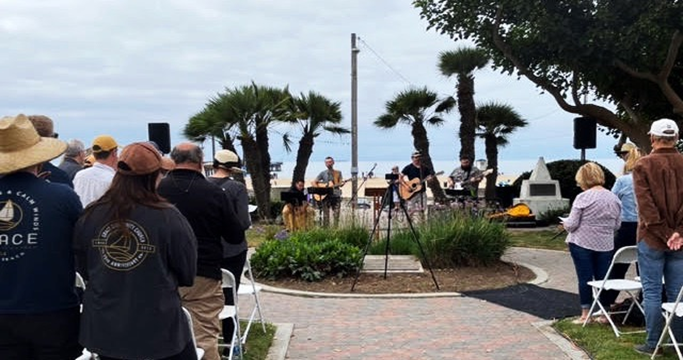 My July 16 sermon “I wanted the High Road but Jesus Gave Me the Low Road” (Mark 10:32-45) is available at: www.gracesealbeach.org
My July 16 sermon “I wanted the High Road but Jesus Gave Me the Low Road” (Mark 10:32-45) is available at: www.gracesealbeach.org “Prophets Are Good for Business”
“Prophets Are Good for Business” Business Virtues Worth Living
Business Virtues Worth Living “It does me no injury for my neighbour to say there are twenty gods or no God. It neither picks my pocket nor breaks my leg.”
“It does me no injury for my neighbour to say there are twenty gods or no God. It neither picks my pocket nor breaks my leg.” A couple of decades back the Los Angeles County Board of Supervisors removed from the county seal a cross located at the peak of the roof of Mission San Gabriel. This was a symbol of erasing religious culture before words like “cancel” became common.
A couple of decades back the Los Angeles County Board of Supervisors removed from the county seal a cross located at the peak of the roof of Mission San Gabriel. This was a symbol of erasing religious culture before words like “cancel” became common.
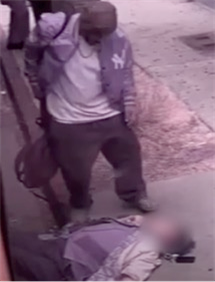
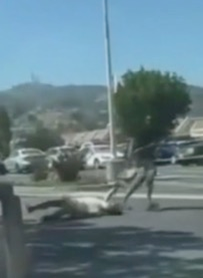

 Every February for the next half-century I’ve been reminded of this as I saw this tree near my home in full blossom.
Every February for the next half-century I’ve been reminded of this as I saw this tree near my home in full blossom.  ““Congress shall make no law respecting an establishment of religion, or prohibiting the free exercise thereof, or abridging the freedom of speech, or of the press; or the right of the people peaceably to assemble, and to petition the Government for a redress of grievances.”
““Congress shall make no law respecting an establishment of religion, or prohibiting the free exercise thereof, or abridging the freedom of speech, or of the press; or the right of the people peaceably to assemble, and to petition the Government for a redress of grievances.” Back the Badge
Back the Badge “As a law enforcement officer, my fundamental duty is to serve mankind – to safeguard lives and property, to protect the innocent against deception, the weak against oppression or intimidation, and the peaceful against violence or disorder… “ – Law Enforcement Code of Ethics
“As a law enforcement officer, my fundamental duty is to serve mankind – to safeguard lives and property, to protect the innocent against deception, the weak against oppression or intimidation, and the peaceful against violence or disorder… “ – Law Enforcement Code of Ethics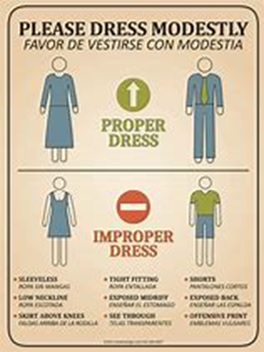 Nor does God approve of physical show-offs! “Respectable apparel” shows modesty and self-control. What is “immodest” attire? I can’t exactly define it** and cultural norms may apply. Paul has 1st century attire in the Roman world in mind. If immodesty appalled him then, what would he say about today’s immodesty?
Nor does God approve of physical show-offs! “Respectable apparel” shows modesty and self-control. What is “immodest” attire? I can’t exactly define it** and cultural norms may apply. Paul has 1st century attire in the Roman world in mind. If immodesty appalled him then, what would he say about today’s immodesty? “Truth to some is no longer empirical, no longer based on data, common sense, or even common decency – telling the truth is no longer the benchmark for public service, no longer the salve to our fears nor the guide to our actions. Truth is now considered malleable, by Opinion, Narrative, by Zero-Sum Endgames.”
“Truth to some is no longer empirical, no longer based on data, common sense, or even common decency – telling the truth is no longer the benchmark for public service, no longer the salve to our fears nor the guide to our actions. Truth is now considered malleable, by Opinion, Narrative, by Zero-Sum Endgames.” A “Good Word” for Independence Day
A “Good Word” for Independence Day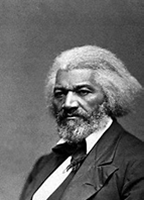 Frederick Douglass
Frederick Douglass They were peace men; but they preferred revolution to peaceful submission to bondage. They were quiet men; but they did not shrink from agitating against oppression. They showed forbearance; but that they knew its limits. They believed in order; but not in the order of tyranny. With them, nothing was “settled” that was not right. With them, justice, liberty and humanity were “final;” not slavery and oppression. You may well cherish the memory of such men.
They were peace men; but they preferred revolution to peaceful submission to bondage. They were quiet men; but they did not shrink from agitating against oppression. They showed forbearance; but that they knew its limits. They believed in order; but not in the order of tyranny. With them, nothing was “settled” that was not right. With them, justice, liberty and humanity were “final;” not slavery and oppression. You may well cherish the memory of such men.
 Forgiveness Principle #4 – Forgiveness is primarily Inter-relational; it is not primarily Therapeutic.
Forgiveness Principle #4 – Forgiveness is primarily Inter-relational; it is not primarily Therapeutic. “Those who expect to reap the blessings of freedom must…undergo the fatigue of supporting it.” – Thomas Paine
“Those who expect to reap the blessings of freedom must…undergo the fatigue of supporting it.” – Thomas Paine The Dodgers and
The Dodgers and What happened recently between the Los Angeles Dodgers and the Sisters of Perpetual Indulgence has been a three-ring circus.
What happened recently between the Los Angeles Dodgers and the Sisters of Perpetual Indulgence has been a three-ring circus.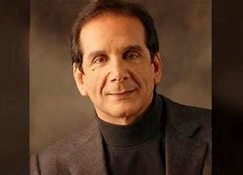 “I believe that the pursuit of truth and right ideas through honest debate and rigorous argument is a noble undertaking.”
“I believe that the pursuit of truth and right ideas through honest debate and rigorous argument is a noble undertaking.”